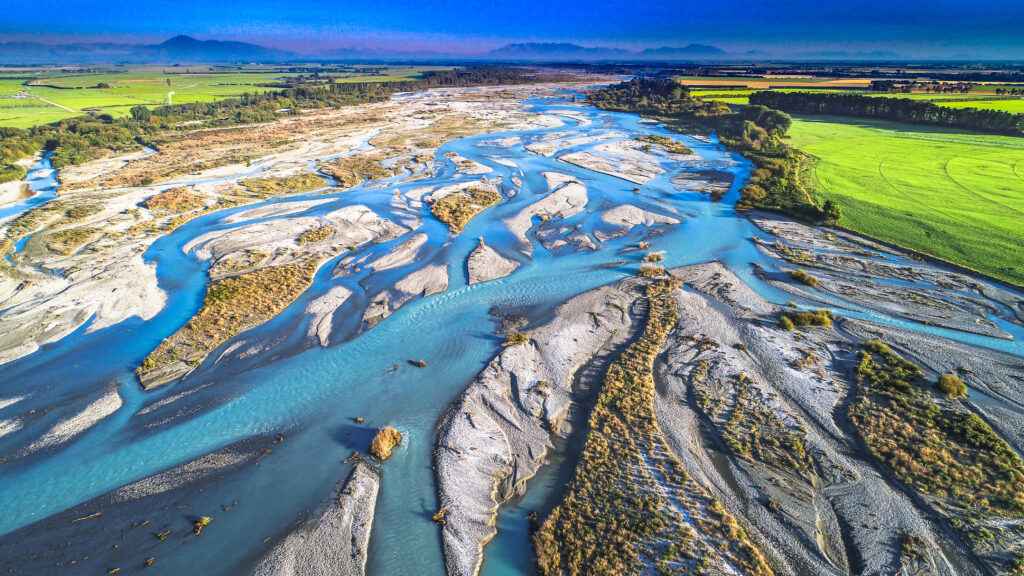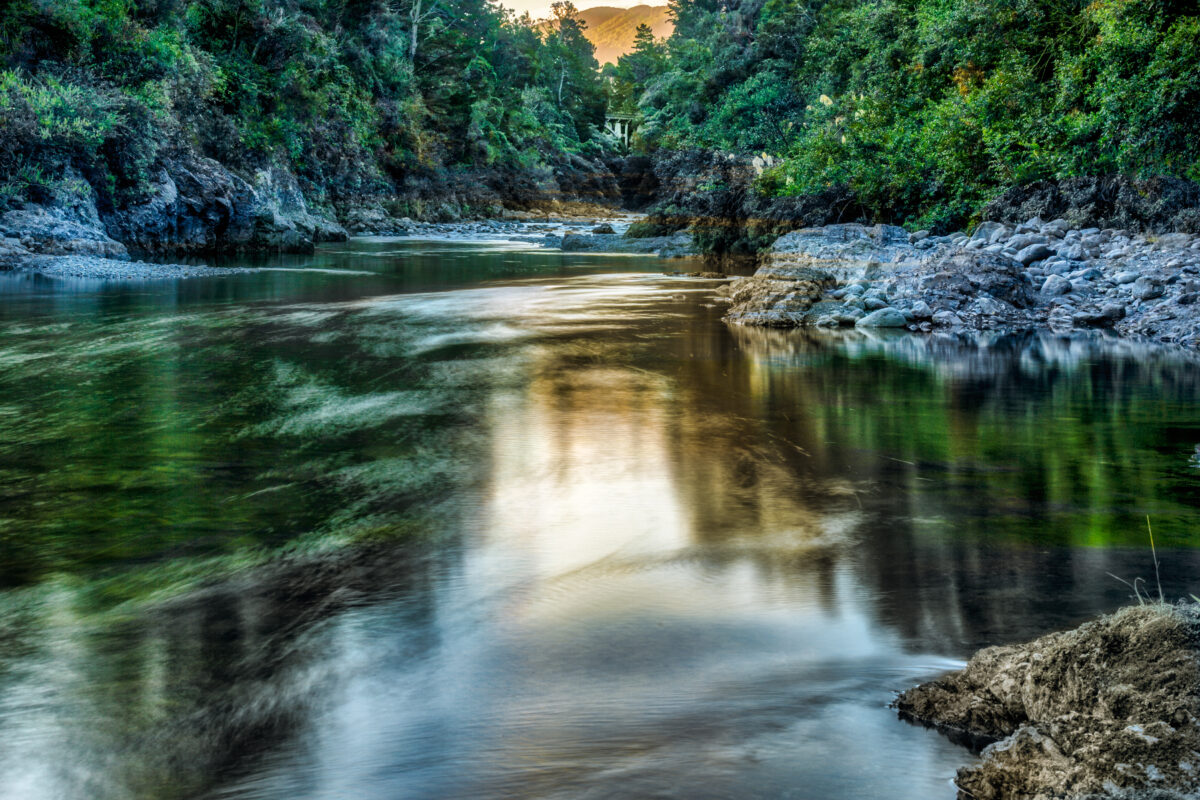
Haere mai — welcome to the July kōrero column. Māori have traditionally regarded awa (rivers) as the veins of the earth goddess Papatūānuku. They are an intrinsic part of the vitality and lifeforce of the land. Identification with a particular river helps link a Māori person to their ancestral heritage.
Mingled in with their cultural and spiritual importance, awa were extraordinarily useful in the day-to-day life of traditional Māori. Settlements were often built at the mouth of a river.
Awa were a source of fresh water and kai, and an important means of travel — it was much easier to paddle a waka up or down a river than make an arduous journey on foot through rough country.
Kupu hou (new word)
- Awa (river) — pronounced “ah-wah”
- Ko Rakaia tōku awa. — Rakaia is my river.
More words related to awa:
- he awa whiria — braided river
- pūao — river mouth
- tūhana — river-crossing pole
- muriwai — backwater or lagoon/junction of streams
- roto — lake
- takere — river channel, river bed, seabed
- pūkaki — stream/creek
- whiti — to cross over
- arawhiti — bridge

E mihi ana ki a Titihuia Pakeho rāua ko Mairi Lucas.
Sources




